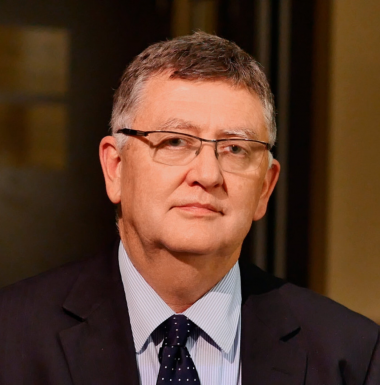Counselling bodies threatened with legal action over conversion therapy stance

A Christian therapist has threatened legal action against several counselling and psychotherapy bodies over their support for a memorandum of understanding that opposes conversion therapy.
The 2017 Memorandum of Understanding (MoU) describes conversion therapy as "the term for therapy that assumes certain sexual orientations or gender identities are inferior to others, and seeks to change or suppress them on that basis".
It states that conversion therapy in relation to gender identity and sexual orientation is "unethical, potentially harmful and is not supported by evidence".
Dr Mike Davidson provides counselling for people with unwanted same-sex attraction or gender dysphoria, but has denied practising so-called 'conversion therapy'.
He says that endorsement of the MoU has prevented him from being able to pursue further study in psychotherapy and has created "a de facto ban on therapeutic choice for those seeking help for undesired same-sex attractions".
"This is a political document; its writers are illusive and those who manage it provide no opportunity for public or professional scrutiny," he said. By the MoU, the anti-therapy lobby has captured UK mental health bodies to the point that only one viewpoint is acceptable.
"Thousands of persons who are both-sex attracted are being denied the opportunity to work towards their goal of choice. We call on the end to ideologies represented by the MoU that masquerade as science, to be made accountable."
Dr Davidson has sent pre-action letters to seven UK bodies over their support for the MoU.
He is claiming direct and indirect discrimination on the grounds of his Christian belief, contrary to the Equality Act 2010.
He argues that the MoU agreement breaches articles 8, 9 and 14 of the European Convention of Human Rights and is therefore unlawful.
Andrea Williams, chief executive of the Christian Legal Centre, which is supporting Dr Davidson, said UK counselling bodies have "closed ranks" against therapists who do not take an affirmative approach to gender dysphoria or unwanted same-sex attraction.
"Essentially, the counselling room is no longer a safe place for counsellors, and it is exceedingly risky for clinicians to do anything but affirm and agree with their clients," she said.
"Therapists are not allowed and are too afraid to provide the help that clients want and are asking for. This has ruined the practice of clinical psychology, which is entirely dependent on trust and privacy.
"The MoU gives no recognition to the hundreds of men and women who have voluntarily sought support for their unwanted same-sex attraction and have benefited from it.
"This memorandum sends the message to anyone wanting support that they must stay gay."











